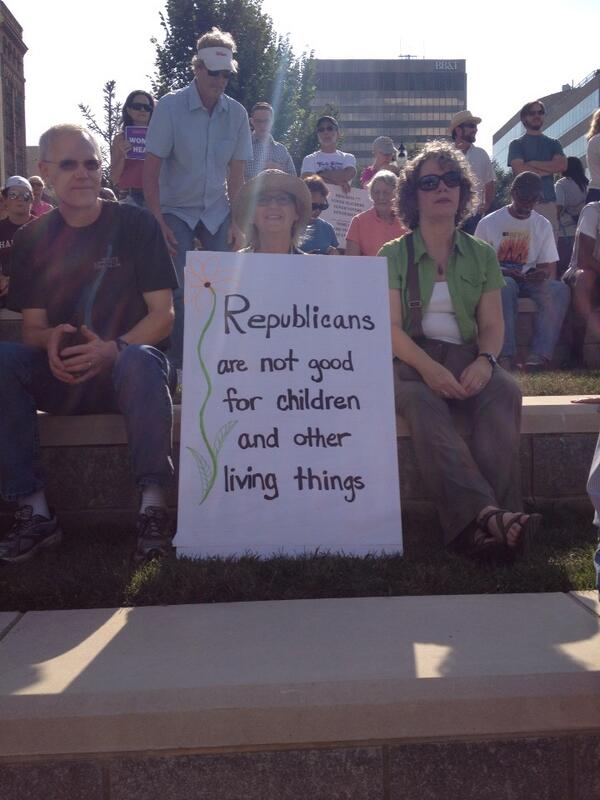A Catholic Girl's "Calling" to Sex Ed
By Jennifer Hart, MPH
Having been raised in a suburban, lower-middle class Irish Catholic family in New England has certainly impacted my worldview, particularly as it relates to issues of religion and sexual and reproductive health issues. In fact, my experiences related to religion are what ultimately “called” me to study and work in sexual health specifically, and not reproductive health. I was raised in a family that never questioned the Faith, nor talked about it in relation to other faith beliefs. There were certain expectations that went along with being Catholic, having to do with sex, gender, and relationships. Although I knew these silent yet steadfast expectations, I questioned my acceptance of these tenets even as a teenager.
I’m the first to admit my privilege, and to be completely transparent: I’m a white, upper middle class, cisgender, heterosexual female with undergraduate and Ivy League graduate school degrees. I am also cynical, jaded, hardened, pragmatic, and sarcastic. I’m a divorced, 35 year old recovering Catholic from the Northeast, now living in a large urban city, and identify as a Secular Humanist. I am in a loving relationship with an amazing man, 19 years my senior. Other than being a woman (which is a challenge unto itself), I’ve got a lot of privilege. My struggles are my own, but I know others have endured far more than I.
When I was about 13, my mom gave me a stack of readers and pamphlets about my body and puberty, told me to look through them, and to come back to her if I had any questions. I only had one question, which came after watching a cartoon video on puberty. It was about how girls masturbate. I was too embarrassed to ask her in person, so I wrote a note. I never got a reply. Really, the only other question I asked was a personal one, to my mom. I said, “Can I ask you a personal question? Did you and Dad have sex before you were married?” Her answer: “That is a personal question.”
Everything else I learned about sex came from school and from friends. The internet wasn’t really something you surfed for answers in those days. I remember as a middle-schooler, seeing one 8th grade couple making out in the hall way – all the time. When they broke up, it was the talk of the century. I had major, heart-wrenchingly intense, unrequited crushes on boys. I remember having only one sex-ed class in high school – 9th grade, I think, and it was about reproduction and abstinence. I was in a class with all girls, and the boys were getting educated in the room next door. I was a good girl. I called myself “Halo Head.” I was a good Catholic girl and my plan was to wait until I got married to have sex. (Ok, so I didn’t wait until I was married, but I did wait until I was engaged).
My parlay into sexual discourse and awareness grew from the socially acceptable expectation that all girls will eventually experience pregnancy, and the socially vilified reality of sexual assault. I remember feeling “those feelings down there” when I’d read books or watch shows involving childbirth or rape. Childbirth. Rape. Even writing this, I think, how creepy is that?!? But, these passages and scenes were not stigmatized as “dirty” or porn, only natural and horrible, respectively. The common thread between child birth and rape is sex. Later, as an adult, in thinking about how my interest in sexuality began, I felt angry and ashamed that it was linked prominently to pain and violence, and not pleasure. My interest was steeped in stigma and shame. My access to positive messages of sex and relationships was censored and oppressed by my religious upbringing. Don’t even get me started on my love affair with the Thorn Birds.
I moved away from my family and childhood home in suburban Connecticut when I was 18 to rural North Carolina, where I lived for 13 years. I chose to attend Lenoir-Rhyne College, a small, private, Lutheran school, because of their unique and renowned program for Deaf Education. Those choices led me through the formative years of my life; I was out on my own, making decisions, and determining and defining my values. Immediately, I noticed that religion was undeniably prevalent. Signs and billboards touted Jesus and Bible verses, abiding worshipers stood on highway medians preaching into the open windows of passing cars, and business meetings began with prayer. I was approached on numerous occasions by people asking me where I attended church – then either shunned or considered a potential convert when I told them I was Catholic. “So you’re not Christian,” they’d say. I could be “born again”, a concept foreign to me.
Such confrontations about religion and vocation forced me to reckon with my own faith, in particular those tenets that had social and political implications. The Catholic faith clearly defines its views on issues related to sexuality, including premarital sex, homosexuality, contraception, abortion, masturbation, and gender roles in relationships, just as clearly as it defines the guilt associated with the abandonment of these definitions. My foundation was firm until I began to see the gender inequities and discrepancies between my faith and my career path.
I broke away from the confines of Catholicism, and organized religion in general, and have dealt with the repercussions ever since. I was challenged by religion’s pervasiveness within professional and social outlets within the “Bible Belt.” My reactions to religion became defensive and negative. My work in teen pregnancy prevention, HIV/AIDS, and sexual and reproductive health advocacy made my time in the rural southeast an eye-opening and challenging experience.
In the area of sexuality education, often local and regional legislation determines what you can and cannot say in the classroom. Teaching “abstinence-only-until-marriage” sex education classes and condom failure rates is a denial of the facts and reality of teen sexual initiation. This type of education works against itself when youth choose not to use condoms upon their sexual debut because they believe what they’ve been taught, ultimately increasing infection rates and unintended pregnancies. In addition, an entire population of students is made invisible and silenced by the abstinence only until marriage message. Lesbian, gay, bisexual, transgender, queer, and questioning (LGBTQQ) youth have very few (although ever-increasing) options for considering the notion of marriage in their lives, and are hardly ever included in educational conversations and settings about sexuality. The idea that students need only be taught about abstinence and nothing else further perpetuates the stigma of sex and sexuality, of sex as solely procreative, silences LGBTQQ students, and erases women’s sexual pleasure from the conversation.
In 2002, the World Health organization organized a meeting in Geneva to discuss and further define Sexual Health. The attendees came up with the following guide (emphasis is my own):
Sexual health is a state of physical, emotional, mental and social well-being in relation to sexuality; it is not merely the absence of disease, dysfunction or infirmity. Sexual health requires a positive and respectful approach to sexuality and sexual relationships, as well as the possibility of having pleasurable and safe sexual experiences, free of coercion, discrimination and violence.
Despite this positive and open-minded approach to sexual health, the United States’ proclivity to limit and oppress access to sexuality information and education, through the promulgation of religious and cultural expectations has significant emotional, mental, and physical consequences. Sexuality and health are the foundation of our being and yet in the South and in many other areas of our country, parents, teachers, clergy, doctors, clinicians, and even pharmacists refuse to accept that sex is natural and normal, putting their morality onto the lives of their children, students, congregants, patients, and clients. The effect of inhibiting discussions of sex, identity, and health is detrimental to the overall health, well-being, and stability of a person and society as a whole. My liberal values for social, sexual and reproductive justice and gender equality were tested daily in this conservative Christian part of the country. There, and even now in my urban city, I continue to see the increasing influence of religion on politics and funding streams regarding the sexual and reproductive issues I support.
Now, I work in the abortion field, implementing training and education opportunities for abortion care providers. Part of my job is to provide values clarification and pregnancy options counseling training to those working with women who seek abortion care or support. Inevitably, the recurring challenge that counselors face is working with religious patients. The skill of the counselor is to meet the patient where they are in their belief system. Helping the patient create a space in their faith where their god provides them with comfort and acceptance rather than shame and guilt can be transformative for the patient. Although abortion is couched within the reproductive health and justice movements, I see abortion as the bridge from reproductive health to sexual health. Abortion enables women to maintain their autonomy as sexual beings, undoing the expectation that they will, or should, parent. Coming from my upbringing, I never really thought that I would be working in abortion. But here I am, and I believe in its morality.
Despite my personal struggles with religion and faith, I very firmly recognize the intrigue that religion holds for me, especially with regard to issues of sexual and reproductive health, and its influence on the choices people make. I am also painfully aware of my knee-jerk emotional reactions to religion and its pervasiveness in the social constructs of our society. Still, we need to fight as a society to answer these questions: What does an individual need to be a healthy, well-rounded, confident sexual being? How can society overcome religious stigma and understand the complexities of sexuality with compassion and acceptance? How can we educate and empower women and men to love themselves without the detrimental comparison to unrealistic ideals set forth by society, the media, and religion? How do we do all of this while still maintaining the integrity of a culture and community of people and their unique and diverse beliefs?
My work in teen sex-ed and pregnancy prevention, HIV/AIDS, and abortion has focused my passion on the sexual being of humans, by way of stigma. My experiences showed me that I was advocating for a person who happened to have an STI, who happened to be pregnant, who happened to have HIV, or who happened to be gay. My passion was in supporting this person, who, because they are a sexual human being, was now being treated with hatred, discrimination, and condemnation. I studied sexuality and health because a person is first a sexual being (from birth!), before they are a reproductive person (if at all!). Sexuality encompasses the continuums of one’s sex, gender, orientation, sexual behavior, sexual health, and sexual rights. The binaries of sex, gender, and orientation that our society so loves and finds so comforting reduces us to the moral panics that devolve into ideological rhetoric at religious and political bully pulpits.
Comprehensive sexuality education, sexual positivity, sexual rights, and reproductive justice are foundations of morality, rooted in compassion and humanism. I have made choices, strongly influenced by my Catholic upbringing, and I’ve made choices as an autonomous, sexual woman. It has been these choices, the ones I’ve made based on my gut desire and intuition that have been the most satisfying and fulfilling. My hope is for people across all walks of life and ages to have control over and take pleasure in their sexual health.
About the Author
Jennifer A. Hart, MPH, is the Director of Training & Education at the National Abortion Federation. In 2011, Jennifer earned her Master of Public Health from Columbia University’s Mailman School of Public Health in New York City, where she studied Sexuality and Health and religion’s influence on policy and access to care. Jennifer’s career and education have focused on the stigmatized issues of abortion, HIV/AIDS, sexual and gender-based violence, and sexual identity and rights. She has worked with Global Doctors for Choice, a global initiative of Physicians for Reproductive Health; the Access Team at International Planned Parenthood Federation/Western Hemisphere Region (IPPF/WHR); and Planned Parenthood Federation of America. Jennifer studied and worked abroad in the Dominican Republic, Ecuador, and Nigeria with organizations such as Profamilia, Instituto de Sexualidad Humana, and Rotary International. Prior to graduate school, Jennifer was the executive director of ALFA, the only HIV/AIDS service organization in rural northwestern NC, where she worked for eight years. Jennifer earned a BA in Spanish and Human and Community Service from Lenoir-Rhyne College (now known as Lenoir-Rhyne University) and a Certificate in Nonprofit Management from Duke University. She volunteers as co-administrator of Repro Health Happy Hour DC, and is a blog contributor for Planned Parenthood of Central and Greater Northern New Jersey’s Center for Family Life Education. Most weekends, Jennifer can be found with a mug of French press coffee, ranting and raving about politics, religion, and social justice issues with her partner and their kitty kids. Jennifer can be reached at [email protected].










